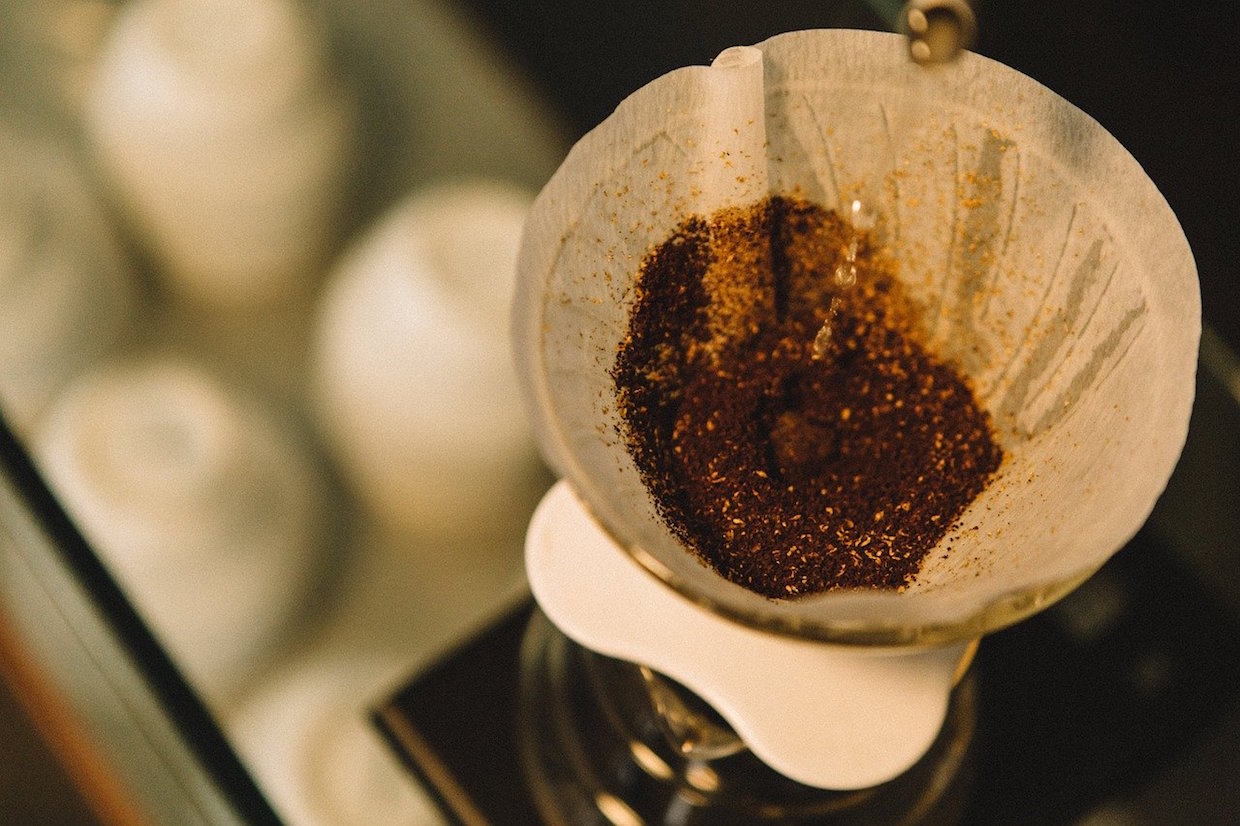A major experiment in traceability and consumer behavior is underway as a J.M. Smucker brand is coming to market with bags of roasted coffee that encourage drinkers to view the blockchain ledger.
Pitched as a step towards supply chain equity, the product launch also raises questions about how much burden consumers are willing to bear in creating sustainable supply chains, particularly those of large multinational coffee companies that have continued to rake in record sales in the midst of a price crisis for coffee farmers.
The J.M. Smucker brand involved is 1850 Coffee, which the company positions as its higher-end brand of roasted coffee under the Folgers umbrella. 1850 Coffee introduced its 100% Colombian Coffee offering last week, featuring IBM-developed blockchain technology that traces the coffee’s journey throughout the supply stream.
The third major partner in the project is the Switzerland-based Farmer Connect, whose platform allows for the data — discovered by scanning a QR code on the product’s bags — to be shared. The company’s “Thank My Farmer” app and website give users an opportunity to donate to specific projects in related coffee-growing communities.
Smucker and Farmer Connect say the platform is designed not merely for traceability, but to increase “efficiency and fairness in the coffee supply chain.”
According to Smucker, the project is in response to the trend toward more sustainable consumption, particularly among younger, more influential buyers, as outlined in this report from the IBM Institute for Business Value.
“We know that consumers are increasingly interested in transparency in the supply chains for the products they enjoy and we have been committed to helping promote this as part of our coffee sustainability strategy,” Joe Stanziano, senior vice president and general manager of coffee at The J.M. Smucker Company, said in a release of the blockchain-backed product last week. “Our work with Farmer Connect and IBM not only helps connect coffee lovers to the producers who provide their favorite morning drink, it also gives them the opportunity to support these hardworking smallholder farmers and their families.”
This is the most macro iteration yet of blockchain coffee being brought to market. In that sense, it’s also a major experiment in how far consumers are willing to go in assuming culpability in ethical consumption.
Will they actually be willing to work on their own time to access supply stream data? Will they pull out their phones to scan QR codes to access yet another app that provides them with more detail than what’s traditionally on the bag? Will they trust in the veracity of that data? Will they perhaps even go one step further by pulling out their credit card to support farm-level projects?
In essence, will they be willing to cover the costs to improve supply chain equity where the coffee industry has not?
Nick Brown
Nick Brown is the editor of Daily Coffee News by Roast Magazine.
Comment
1 Comment
Comments are closed.







Personally, I’m not looking for a way to make a donation to the coffee farmer; I’m more interested in buying from a brand/shop where ALL sales contribute equitably to the farmer, community, etc.